Being a grant writing consultant often feels like multiple jobs rolled into one. In the course of a day, a grant writer may act as a project manager, data analyst, and nonprofit program developer in addition to actually writing grants. Also, like other self-employed individuals, grant writing consultants also have to perform internal tasks related to their business.
Having the right tools and systems to manage all aspects of the job are essential to being a successful grant writing consultant. Below is a quick glimpse into some of the work I do as a grant writing consultant each day.
Finding Clients
When I first started as a grant writer, many of my clients needed help with one-off applications. While I had recurring clients, in order to keep my schedule full, I had to devote some time each day to marketing myself and looking for new projects.
Most days, I would look for clients on Upwork, a platform that connects freelancer to clients. If I found a job post that matched my skills and experience, I would craft a short proposal explaining my background and how I could be a good fit for their organization. I haven’t pitched on Upwork in some time, but clients that I initially found there return to me every year during their grant season.

Researching Grant Opportunities
Sometimes, clients will have a specific grant opportunity they would like to apply for. Other times, the nonprofit has no idea where to start and needs assistance identifying suitable opportunities. If I’m working with a client in the latter category, I spend at least a few hours doing grant research.
There are several online grant databases that can come in handy: GrantStation, GrantWatch, and Instrumental have both free and paid versions that I regularly use. Simply Googling the nonprofit’s location + grants can also bring up local and state-level funding opportunities. When I find a matching opportunity, I record important information such as funding criteria, request amount limits, and deadlines into a master spreadsheet.
Writing Grants
This part of the job includes filling out grant applications and crafting letters of inquiry. Any text I write on behalf of my client must clearly explain the issue facing their target community and why the nonprofit’s programming is an effective solution. Doing this well requires the incorporation of supporting evidence, so I also conduct extensive research. I only use objective, up-to-date sources, such as reports from government agencies. When information on the topic or specific location is scarce, I will also turn to reports created by research institutes or other nonprofits.
Most grants require an organizational and program budget. Clients may already have these in-hand, but if they don’t, I usually provide templates and assistance to help them put a budget together.
Client Communication
When it comes to client communication, grant writing is a hands-on position. It’s best to collect as much information from the client upfront as possible to save time. However, there are some questions that the client will need to answer in order to complete the application. I usually contact my clients through email, but the Google office suite also has convenient features such as in-text commenting that can streamline communication.
Since grant writers do not have executive authority, I always run new grant opportunities by my clients before pursuing them. Keeping the executive director, board members, and any other relevant administrators in the loop is key to running an ethical business.
Business Administration
Working on my grant writing business looks like writing invoices, trying out new project management tools, and updating my skills. I often attend webinars focusing on fundraising, grant writing, and nonprofit regulations to remain informed. I’ve also joined nonprofit and grant writing Facebook groups to network with other professionals.

Systems and Tools
To keep myself organized, I use a host of virtual software and systems. To schedule my day, I use Trello. I manage client invoices through Freshbooks. I’ve also used tools like Asana, Basecamp, and Clickup to communicate with clients and keep documents organized. Using pre-made templates to store important information such as client details and grant deadlines is also super helpful when I’m juggling multiple applications at once. Other writing tools that are indispensable include an online word and character counter and spell checking software.
Want to Get Started as a Grant Writing Consultant?
Does helping clients get the funding they deserve appeal to you? Maybe you love the idea of self-directed work? Or maybe it’s the financial freedom of being your own boss that you crave?
If you’re ready to learn more about becoming a grant writing consultant, check out our brand-new Grant Writing Consultant course, open for registration April 12-26, 2021. When you register by April 20, you receive a $500 discount!
Stay tuned to learn more!
Our newest nonprofit spotlight is a child loss nonprofit supporting grieving families. Read about their heart felt work here






